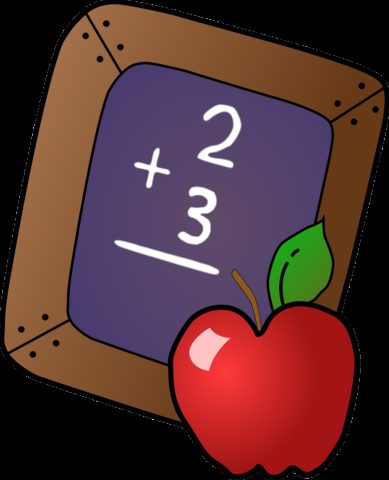In my last post, I wrote about theory and practice in education, and how an overreliance on theory can sometimes lead to students missing out on the practical advice they also need, while an overreliance on practice can sometimes lead to students missing out on the benefits new theories can offer. Even though some teachers lean more towards theory and others lean more towards practice, both have their place, and both can help you learn and develop your study skills. Finding the right balance between theory and practice, finding what works in each situation you find yourself in, and being willing to give your best effort long enough to honestly evaluate what works for you and what doesn’t is the best way to make sure that the right combination of theory and practice will give you the best possible chance to succeed. In this post, I will provide examples from my own experience, both in teaching and in my life outside of school, to show the importance of theory, practice, the balance between them, and the difference that the situation and the teacher can make. In some situations, you will find that you need to be more reliant on theory than practice, while in others, practice will matter more, but in just about every case, you will need both to a certain extent. Just as I said in my previous post, the most important thing of all is taking the time to evaluate each situation, so you can figure out what works best for you.
While I wrote in my previous post that teachers sometimes focus too much on new theories, in my experience, they sometimes focus too much on old theories as well. Whether new theories or old ones, they do this because they truly believe that their way of doing things can and should work for everyone they teach, regardless of any challenges individual students might have. While I always tried to incorporate as much new information as I felt I could into what I taught, even though I still saw merit in a lot of the more traditional teaching that I experienced as a student, some traditional teachers have a particularly difficult time even considering that there might be other ways of doing things that some students need. When I took piano lessons, I had two very different teachers. One taught using contemporary, popular music, and she adjusted very well when I struggled to read two lines of music at once by allowing me to play using only melody notes and chords. When I needed to change teachers after several years with her, I had the completely opposite experience. I was expected to play only classical music and read it properly, and the only accommodation I received was having lines drawn from the treble to the bass clefs to help me line up the notes. This teacher was older and more set in her ways, and I realize now that even armed with new understanding about my challenges and more self-advocacy skills than I had back then, I may not have been able to convince her that I needed more help and/or to be able to play different music. Though I ultimately decided to give up piano lessons because I was busy with other things and could not dedicate extra practice time to trying to learn to play classical music in the traditional way, I could also have decided to continue by asking my parents to help me find another teacher who was able and willing to be more accommodating. I did stay with my new teacher long enough to try to learn from her, and I do enjoy listening to classical music and would have loved to learn to play it, but I took the time to evaluate the situation and decided that ultimately, it was not the right place for me to be.
While the example of my piano lessons shows my struggle with a teacher who relied too much on theory, I have also been in situations where I have struggled with too much reliance on practice. The best example of this is also a musical one, and involves my membership in various choirs, with many different directors, who ranged from very traditional and reliant on theory to very contemporary and reliant on practice, not of music theory, but of contemporary singing and playing style. Unlike with my piano lessons, where I leaned more toward contemporary practice and faced challenges with a teacher who leaned more toward not only traditional theory, but a traditional playing style, I had a much easier time in choir adjusting to different ways of learning and performing music. I have sung very traditional and very contemporary music, have sung both melody and harmony, and have learned harmony in various ways, including listening to and following others who sang my part while the whole choir performed, practicing my part separately from the whole choir with those in my section so that we could only hear and learn our part, and practicing it on my own by playing the notes on my piano until I knew them. While I was able to learn harmony parts in every choir I have sung with, I have found it challenging with some of my more contemporary directors when they have allowed singers to deviate from the notes on the page and make up their own harmonies. These singers relied much more on practice than theory in large part because they did not have the same experience with more traditional directors that I had, but to their credit, most of my fellow singers were willing to learn the written parts when I found it hard to sing their original ones, and I in turn eventually became more willing to learn some of their preferred harmonies as well. Since I found it easier to balance theory and practice while singing than I did while playing piano, I stuck with singing much longer, right up until the beginning of the pandemic, and when the time is right, I look forward to being able to sing in choir once more.
Just as with my varying experiences with both theory and practice when it comes to my life outside of school, so too with teaching. While I came to very different conclusions about what worked best for me as a pianist and as a singer, my entire experience with music has been pretty incredible overall, and I can certainly say the same about teaching. Even though I much preferred finding practical solutions for students’ challenges, I was willing to try new theories whenever I felt confident I could teach the lessons related to them, as well as to allow students to complete their work using what they had learned from other teachers. As a special education teacher, I worked with and learned from many different types of teachers over the years, and no matter their challenges, I always encouraged my students to get the most they could out of what they were learning from every one of their teachers. No matter what they were learning, I always made sure they knew when to appreciate my own and their other teachers’ strengths, so they knew who to turn to to get the right type of help in any given situation. This was particularly true when I knew which of my colleagues was passionate about a certain teaching theory or method that I found challenging, and one example of this that really sticks out as I look back on my career is Touch Math. One of my fellow special education teachers was very good at teaching this method of learning facts and doing calculations, not only to students, but to teachers as well. Since I am not a tactile learner, I declined to learn it when she asked if she could teach it to me, but I will never forget just how impressed I was to see how successful some of the students she had taught it to were able to become with it. Since they were tactile learners, and had learned it from the right teacher, they were able to learn facts and calculate larger numbers just as quickly and accurately using this new theory as I was using the more traditional practice of memorizing the facts by reciting and writing times tables, then using what I’d learned to calculate larger numbers. You might think this skill and preference of mine meant that I tried to teach my students the facts using memorization alone, but I supplemented memorization with various methods and combined traditional practice with newer theories and lessons as much as I felt I could. I also used a different combination of methods with each student depending on what I felt they needed to be successful, and in the end, regardless of subject, finding what works for you means finding not just the right balance between theory and practice, but also the right teacher and situation, and being willing to ask for more help and a different type of help whenever the situation calls for it.
As the above examples have shown, finding the right balance between theory and practice means recognizing that they both can work for you, depending on your unique strengths and challenges and the various situations in which you might find yourself. As with my experiences with music, you might find that while there will be times when you will need to rely more on theory than practice, there will also be times when you will need to rely more on practice than theory. As important as it is to remember to balance theory and practice, what is even more important is recognizing that right teacher and the right situation can make all the difference on your path to success.

